Last month, the BBC’s Richard Black posted a story that looks very much like an attempt to rehabilitate Phil Jones, the University of East Anglia scientist at the centre of the Climategate scandal. The report’s rather surprising headline was Global warming since 1995 ‘now significant’, and looking at the context of this claim is quite revealing.
To begin with, any pretence that this might be an impartial take on a science story is immediately dispelled by using an obviously photoshoped propaganda image at the top of the page:
Evidently climate sceptics are the kind of vandals who scrawl slogans on pristine whitewashed walls, which quite soon are obliterated by rising sea levels or floods – caused by global warming of course – and symbolising the relentless march of victorious scientific research. (The more observant among us may notice that the water level is, in fact, falling not rising, but this is a climate story so that probably doesn’t matter.)
With sceptics firmly in the BBC’s sights, the caption to the image reads: Phil Jones’s comments last year have become a touchstone for climate “sceptics”. This of course omits to mention that “sceptics” were pointing out that the global warming trend had run out of steam long before Jones’ admission, or to consider why a supposed expert on such things should have preferred to avoid public endorsement of this important, but very inconvenient, piece of information prior to the Climategate scandal.
In fact it was an article posing the question Has Global Warming Stopped? written by Dr David Whitehouse for the New Statesman that probably first put the matter on the public agenda.
The substance of Richard Black’s story is simple enough, and he sets it out in the first paragraph:
Climate warming since 1995 is now statistically significant, according to Phil Jones, the UK scientist targeted in the “ClimateGate” affair.
This claim is surprising in two ways. The lack of warming in recent years has become common ground between warmists and sceptics, and Black blatantly attempts to win sympathy for the man at the centre of a major scientific scandal by portraying him as a victim who has been ‘targeted’.
The BBC report continues:
Last year, he [Phil Jones] told BBC News that post-1995 warming was not significant – a statement still seen on blogs critical of the idea of man-made climate change.
And later in the report, just in case the message hadn’t got through:
Professor Jones’ previous comment, from a BBC interview in February 2010, is routinely quoted – erroneously – as demonstration that the Earth’s surface temperature is not rising.
So blogs are to be condemned for not anticipating that Jones would amend his opinion in June 2011? How very strange!
Jones’ new claim is that by taking into account the data for 2010, a warming trend can now be found that meets the 95% confidence threshold indicating that it is not down to chance. But so far as I can see, he has not published this claim in a peer-reviewed journal, but has simply told the BBC who, presumably, can be relied on to headline it without giving any consideration to whether the information is reliable.
Dr David Whitehouse, a one time BBC science correspondent and editor, has an excellent analysis of the rather tendentious reasoning that underlies Jones claim at the Global Warming Policy Foundation in which he says:
I look forward to another BBC News item, dated mid January 2012, based on data to 2011, whose headline is, Global Warming since 1995 ‘now not significant (again).’
He also points out that a recent paper by Kaufman et al (2011), published in the prestigious Proceedings of the National Academy of Sciences, confirms yet again what many peer reviewed papers have already said, that there has been a warming standstill since 1998, something that Black’s article failed to mention, preferring to dwelling on the lack of warming if the reference date is three years earlier. It would be interesting to know whether he and Jones discussed this.
If we look at the Climategate correspondence, we find that the climate research community is very concerned about the global warming standstill, and particularly about the public finding out what is happening.
Back in October 2009 there is an email from Narasimha D. Rao of Stanford University to Stephen Schneider headed BBC U-Turn on climate.
Steve,
You may be aware of this already. Paul Hudson, BBC’s reporter on climate change, on Friday wrote that there’s been no warming since 1998, and that pacific oscillations will force cooling for the next 20-30 years. It is not outrageously biased in presentation as are other skeptics’ views.
[5]http://news.bbc.co.uk/2/hi/science/nature/8299079.stm
[6]http://blogs.telegraph.co.uk/news/damianthompson/100013173/the-bbcs-amazing-u-turn-on-climate-change/
BBC has significant influence on public opinion outside the US.
Do you think this merits an op-ed response in the BBC from a scientist?
Narasimha
Evidently in the strangely distorted world of climate science, reporting something that is true, but inconvenient, is enough to get the reporter lumped in with ‘other sceptics’. It’s true that the prediction about 20-30 years of cooling came from Professor Don Easterbrook, who is openly sceptical about AGW but, as we shall see, the temperature standstill since the 1990’s did not come as news to the Climategate scientists. It is also rather startling that Rao is under the impression that if climate researchers choose to debunk a report at the BBC they have only to ask for space in which to do so.
Schneider was not slow to alert the rest of the climate community to Hudson’s heresy with a supremely arrogant sneer:
Hi all. Any of you want to explain decadal natural variability and signal to noise and sampling errors to this new “IPCC Lead Author” from the BBC?
And presently, Michael Mann added his take on the situation:
Michael Mann wrote:
extremely disappointing to see something like this appear on BBC. its particularly odd, since climate is usually Richard Black’s beat at BBC (and he does a great job). from what I can tell, this guy was formerly a weather person at the Met Office.
We may do something about this on RealClimate, but meanwhile it might be appropriate for the Met Office to have a say about this, I might ask Richard Black what’s up here?
mike
There is also Kevin Trenberth’s dramatic, and now infamous, contribution:
The fact is that we can’t account for the lack of warming at the moment and it is a travesty that we can’t.
Then Tom Wigley, Jones predecessor as director of the CRU, suggests some ideas for damage limitation:
At the risk of overload, here are some notes of mine on the recent lack of warming. I look at this in two ways. The first is to look at the difference between the observed and expected anthropogenic trend relative to the pdf for unforced variability. The second is to remove ENSO, volcanoes and TSI variations from the observed data.
Both methods show that what we are seeing is not unusual. The second method leaves a significant warming over the past decade.
These sums complement Kevin’s energy work.
Kevin says … “The fact is that we can’t account for the lack of warming at the moment and it is a travesty that we can’t”. I do not agree with this.
Phil Jones seems not to have contributed to the discussion at all, although he was copied in on it, and he was clearly aware that there had indeed been a global warming standstill for some time.
In July 2005 he had written to John Christy:
This is from an Australian at BMRC (not Neville Nicholls). It began from the attached article. What an idiot. The scientific community would come down on me in no uncertain terms if I said the world had cooled from 1998. OK it has but it is only 7 years of data and it isn’t statistically significant.
This email ends:
As you know, I’m not political. If anything, I would like to see the climate change happen, so the science could be proved right, regardless of the consequences. This isn’t being political, it is being selfish.
Of course there can be arguments as to whether there has been a global warming standstill since 1995 or 1998, but there can be no argument that there has been a global warming standstill, although Blacks report gives no hint of this. Nor can there be any doubt that the most influential researchers on the climate scene were well aware of the fact long before Hudson dropped his bombshell – just before the Climategate story broke – or Jones came clean in his 2010 BBC interview during the aftermath.
Towards the end of the report, Black says:
Shortly before the UN climate summit in Copenhagen, Phil Jones found himself at the centre of the affair that came to be known as “ClimateGate”, which saw the release of more than 1,000 emails taken from a CRU server.
Critics alleged the emails showed CRU scientists and others attempting to subvert the usual processes of science, and of manipulating data in order to paint an unfounded picture of globally rising temperatures.
Subsequent enquiries found the scientists and their institutions did fall short of best practice in areas such as routine use of professional statisticians and response to Freedom of Information requests, but found no case to answer on the charges of manipulation.
Since then, nothing has emerged through mainstream science to challenge the IPCC’s basic picture of a world warming through greenhouse gas emissions.
There are two points here. Black acknowledges that Jones and his colleagues were criticised for not involving professional statisticians in their work, which of course depends heavily on statistical analysis. Therefore isn’t it rather strange that the BBC should be prepared to give Jones’ claim about a statistically significant rise in temperature when this research has apparently not even been peer reviewed let alone signed off by a professional statistician. And is it really fair-minded to say that nothing has emerged since Climategate to challenge the mainstream on global warming as exemplified by the IPCC? The window that the Climategate emails has provided on the characters, ethics, state of mind, competence and behaviour of top climate scientists should be enough to make anyone cautious about what they are telling the rest of us.

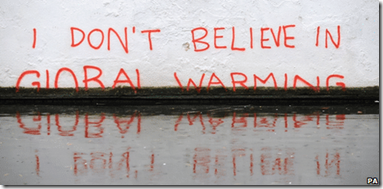

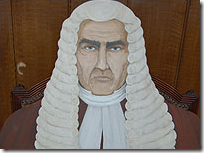
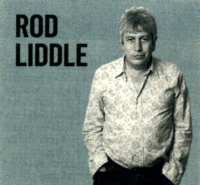
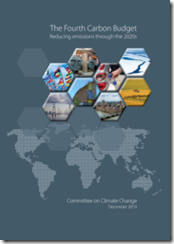

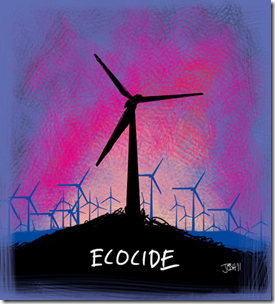
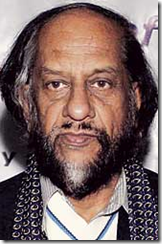
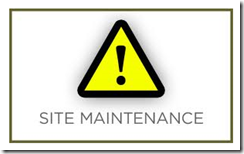
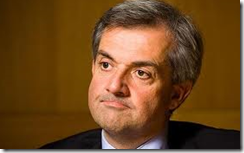
Recent Comments